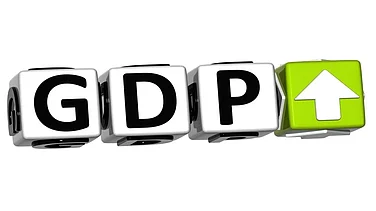Some of the country's biggest credit card issuers saw significant drops in their new card additions in June 2025, Reserve Bank of India (RBI)’s latest data revealed.
This is for the first time since Covid pandemic that the industry’s overall growth has slipped into negative territory. As per an Economic Times report, credit card spends were also found to be at a four-month low of ₹1.83 lakh crore (in which month?). in June, 2025. This, however grew by a little over 5% over June 2024, when spends stood at ₹1.73 lakh crore.
ICICI Bank's total cards in use dropped by about 287,000 over May to 17.9 million at June end. Similarly, Kotak Mahindra Bank also saw a sharp decline of 286,000 cards. On the other hand, RBL Bank lost over 47,000 cards and Axis Bank saw a drop of around 6,000.
"We keep monitoring our portfolio and we believe that the quality of the book that we have built is quite stable. In case there are early signs of stress, we take proactive actions,” Sandeep Batra, Executive Director of ICICI Bank, said while addressing the post Q1 earnings media call.
Back in May, ICICI Bank had seen negative growth of over 31,000 credit cards. A consistent decline in new card addition was also seen at RBL Bank, since it stopped sourcing from Bajaj Finance in November last year.
What’s Behind this Trend?
Over the last one year, banks have reported delinquencies and growing concerns about credit card defaults. With many card holders delaying repayments, banks are now prioritising a more cautious approach over their aggressive growth strategies. As per analysts, banks are looking for top quality customers to limit delinquency issues in the future, as it is limiting growth.
"Banks are cautiously growing their book and targeting only high quality customers, hence we are seeing a slowdown," said Ashutosh Mishra, Head, Institutional Equities Research at Ashika Stock Broking. "There is a RBI rule which directs banks to deactivate cards that have remained unused for 365 days or more, the period to declassify such cards has started again,” he added.
Additionally, the Reserve Bank of India (RBI) has introduced stricter regulations on unsecured lending, which includes increased capital requirements for banks. In November 2023, the central bank raised risk weight on unsecured retail credit, including credit cards by 25%. This was aimed at forcing banks to hold more capital per card. Such regulatory changes have made it more expensive for banks to issue credit cards, thereby leading to a slowdown in new additions. The RBI has also been actively monitoring the credit card industry and implementing measures to curb excessive lending and risky practices.
According to head of strategy, RBL Bank, Jaideep Iyer, "We have been consciously growing this (credit card) portfolio slower”. He further noted, "Its important that we continue to put a high threshold for new origination of cards both from asset quality as well as cross-sell standpoint to ensure that this becomes a meaningful customer acquisition tool for the bank rather than only a credit card acquisition tool."
Net Additions Drop Despite Gains by HDFC, SBI, Federal Bank
In contrast, some card issuers have also reported an increase in their card base. For instance, HDFC Bank has added 212,000 cards and SBI has added 83,000 cards. However, in terms of rate of growth in additions, the pace has slowed compared to previous months. In May, both added 274,000 cards and 126,000 cards respectively. Additionally, Federal Bank and IDFC First Bank have been consistently adding new cards. In June, Federal Bank added more than 92,000 cards while IDFC First Bank added more than 70,000 cards.
As total credit card base remained flat at 111.1 million last month, the total net new card issuance fell by 235 in June 2025.





























